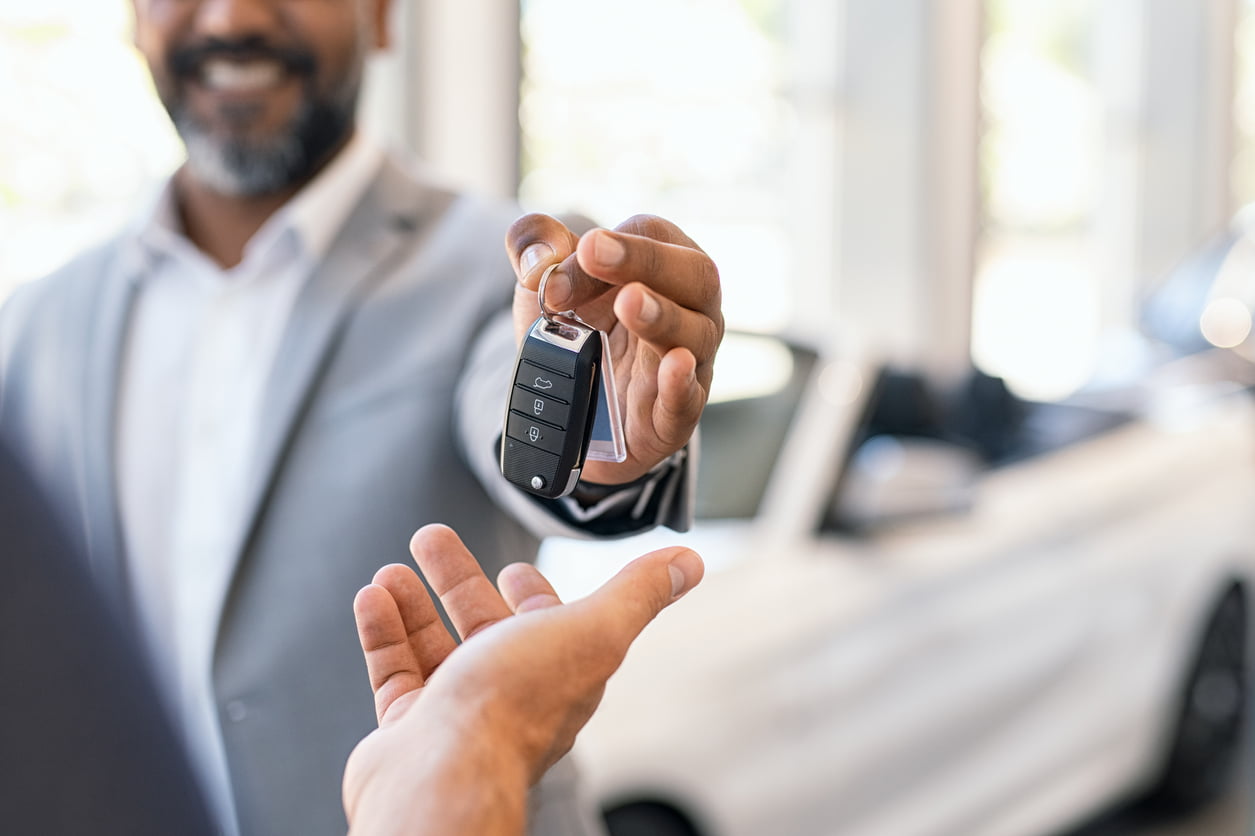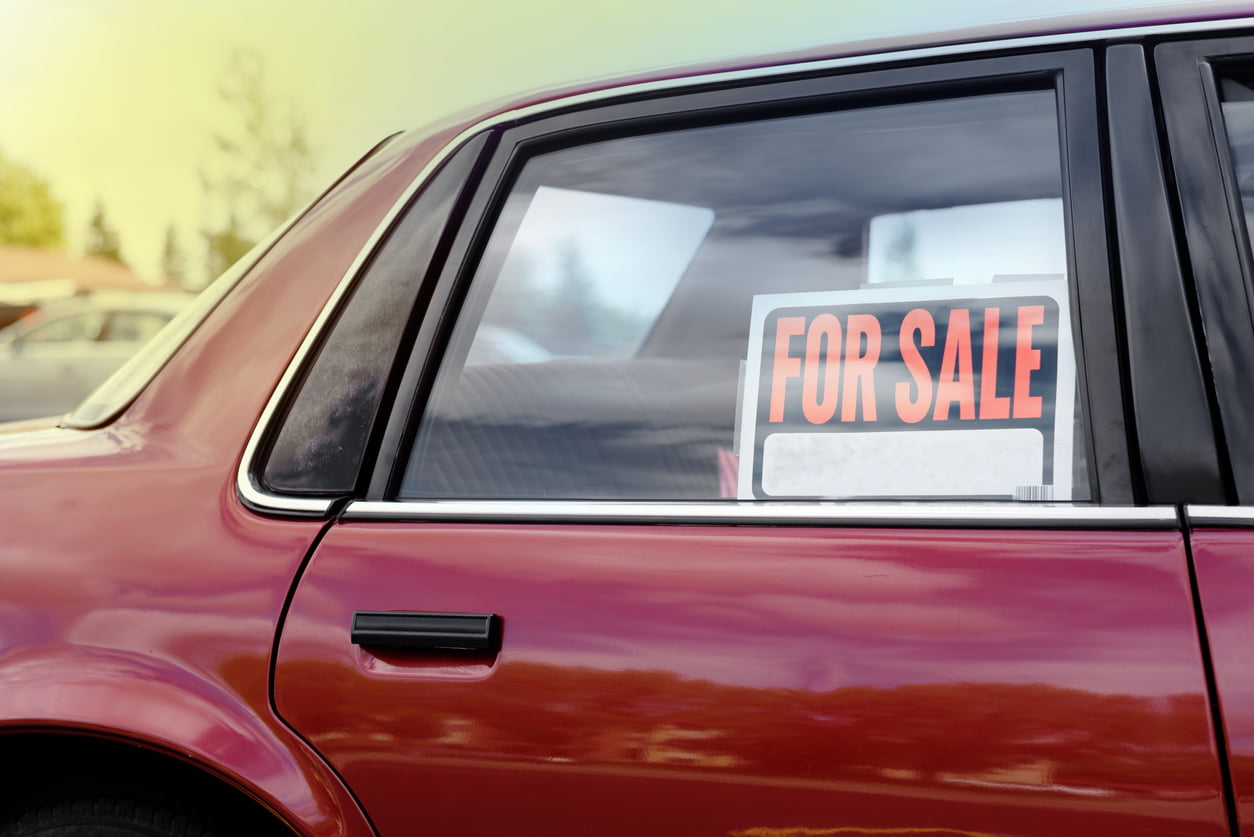While the types of vehicles available for purchase are becoming more high-tech and specialized, saving money on purchasing your new ride by trading in your old one is still a great strategy. In fact, if you are the owner of a used car and looking to sell it, there’s never been a better time to do it because of the shortage of vehicles on the market. Dealerships across the province are looking for good used cars and are willing to pay more than they have before for your trade-in. So, what is your car worth? Let’s examine how to find out about how much your car trade-in is actually worth.
What does car trade-in value mean?
When you are looking to buy a new vehicle and sell your current vehicle to the dealership as part of the deal, this is called a trade-in. Almost always, the amount of money that a dealer will offer for the vehicle, the trade-in value, is less than the amount you can get by selling it on your own, also known as the market value.
How to determine your vehicle’s trade-in value
It’s not only the listed price of an automobile that matters – it’s important to know what it sold for. Using a car trade-in calculator, you can get a realistic idea of how much your car is worth based on the price that similar models are sold for in your local area.
Before you use the calculator, you should know the following:
- Make, model, year, and trim
- Upgrades or specific features
- Mileage
- Postal code
Factors that impact your car trade-in value
Your used car trade-in value depends on several elements, from mileage to condition. Discover how car value can decrease and how to keep yours high. According to Capitalone.com, here are a few factors that go into determining used car trade-in value:
1. The age of your trade-in
With some exceptions, cars tend to lose their value rapidly. They can drop by 20-30% in the first year and 60% or more of the original price after five years.
2. The mileage on your trade-in
Low mileage can tip the balance in favor of an older trade-in.
3. The overall condition of your trade-in
Regardless of age or mileage, condition plays a huge part in your used car trade-in value. Dealers look at what it will cost them to repair or replace the things necessary for the car to sell at a strong price. Additionally, they’ll deduct that from what otherwise could have been a decent offer for your trade-in.
4. The history of your car’s maintenance
You can improve your chances for the highest car trade-in value if you have maintained it according to the manufacturer’s schedule in your owners’ manual. Be sure to keep the paperwork from every one of those visits.
Other important factors include:
- The equipment in your car: Pluses at trade-in time are an automatic transmission, upgraded factory audio systems, automatic climate control, power seats, upgraded upholstery, and sunroofs. In colder climates, all-wheel drive, heated seats, and steering wheels can also up the value.
- Current demand dictates the deal: Other factors to consider beyond equipment are: neutral paint colours sell best, while models that sold poorly or a make that’s gone out of business are less desirable. Climate plays a part as well i.e. convertibles are likely to be much stronger in the Sunbelt than the Snowbelt, while cars with good gas mileage can be worth more in regions with higher fuel prices.
- Make a good impression at trade-in time: Clean the car, vacuum it out, remove your personal items and run it through a car wash. A full detailing of the exterior, interior and engine bay might be an even better idea. It conveys a well-cared for car and can easily pay for itself in trade-in value.
It’s the perfect time to trade-in your car
Shrunken supply of vehicles has inflated car prices to the point that some used models are now worth so much, they’re selling for more than their new counterparts. The average price of a new car has jumped by 12.7% to $50,758. Meanwhile, the average price of a used car in Canada has jumped nearly 50% since last year. James Hancock, Director of OEM Strategy and Analytics at Canadian Black Book, which values new and used vehicles, said a four-year-old used vehicle with about 100,000 kilometres would normally be worth about 40 to 50 percent of its original sticker price, taking into account depreciation. But in the current climate, with a shortage of supply because of manufacturing issues caused by a shortage of semiconductor chips, a similar car could be worth 85 percent of its original sale price.
To learn more about the current car shortage, please click here.
Car trade-in value and resale value are not the same thing
One important thing to remember when you’re selling or trading in a vehicle is that your car’s resale and trade-in values are not the same thing. A vehicle’s resale value is what it is deemed to be worth in the retail marketplace, whether it’s being sold privately or by a dealership. A car or truck’s trade-in value is the amount you can expect a dealer to pay you when you trade it in against the purchase of another vehicle.
The trade-in value will almost always be lower than the resale number because dealerships will often offer you a figure very close to wholesale value, or the low end of any estimated trade-in values you see online. They will then list the vehicle for sale at a higher price. Keep in mind, if you decide to trade-in your vehicle, there is no such thing as exact pricing regarding trade-in value. The amount offered can change based on the vehicle model, dealers’ inventory, and their ability to resell the vehicle.
However, trading in your vehicle directly to local dealerships allows you to see not only what they will offer for the vehicle, but it also gives you a chance to view their current inventory and look at similar models of your car for price comparison.
Other car trade-in resources
One of the easiest ways to find out the trade value of your car is to check online. Here are some resources to find out your value in the comfort of your home:
- Since 1955, the best-known provider of vehicle value in the automotive industry is Black Book. They provide relevant and accurate vehicle pricing information, and it’s free of charge.
- Carfax Canada: Another useful resource is the Carfax Canada value range estimate tool, which gives you high, low, and average values for your vehicle based on the information you provide about the car.
- AutoTRADER has an online tool where you can compare the cost of trading, buying, or selling your automobile.
- KBB (Kelley Blue Book) will help you compare prices on new and used vehicles, and provide reviews and ratings. It also lets you factor in your vehicle’s condition, listing it as either Fair, Good, Very Good, or Excellent.
- Canada Drives: Canada Drives’ online Sell My Car tool is a convenient alternative to these more traditional resources. It will tell you what your vehicle is worth on the used market. The difference is by using Canada Drives’ online sales model, you can use that value as a trade-in amount against your next vehicle.
Should I trade my car in or sell it privately?
While selling a car or truck privately will almost always get you more money back than trading it in, that extra money does come at a cost. Selling a vehicle privately is time-consuming, requires detailed planning and documentation, and can even be quite stressful. You also have to schedule and coordinate times for interested buyers to view the vehicle and take test drives.
Is there a tax savings benefit when I trade in my car?
One of the biggest benefits to trading in your car versus selling it privately is the tax savings you enjoy. When you trade in your vehicle, the value automatically reduces the price you pay on your new car or truck. And you only pay taxes on the reduced price of your new ride.
Can I trade in my car for a lease?
Although down payments are not necessary when you lease a vehicle, using the money you receive from a trade-in can help reduce the monthly payments towards it. However, it won’t save you much on the interest charges. It isn’t recommended to use trade-in cash towards a lease because you’ll have a higher risk of loss if anything happens to the vehicle.
Final thoughts on car trade-in
Even if you’re not actively shopping for another vehicle, regularly checking the trade-in value of your current car or truck is a wise habit to get into — especially if you want to optimize the value of the vehicle before it depreciates too much. Having that trade-in value in mind while you shop around will help you assess what you can afford. If you’re looking to obtain insurance for your new vehicle, contact one of our isure brokers today!




